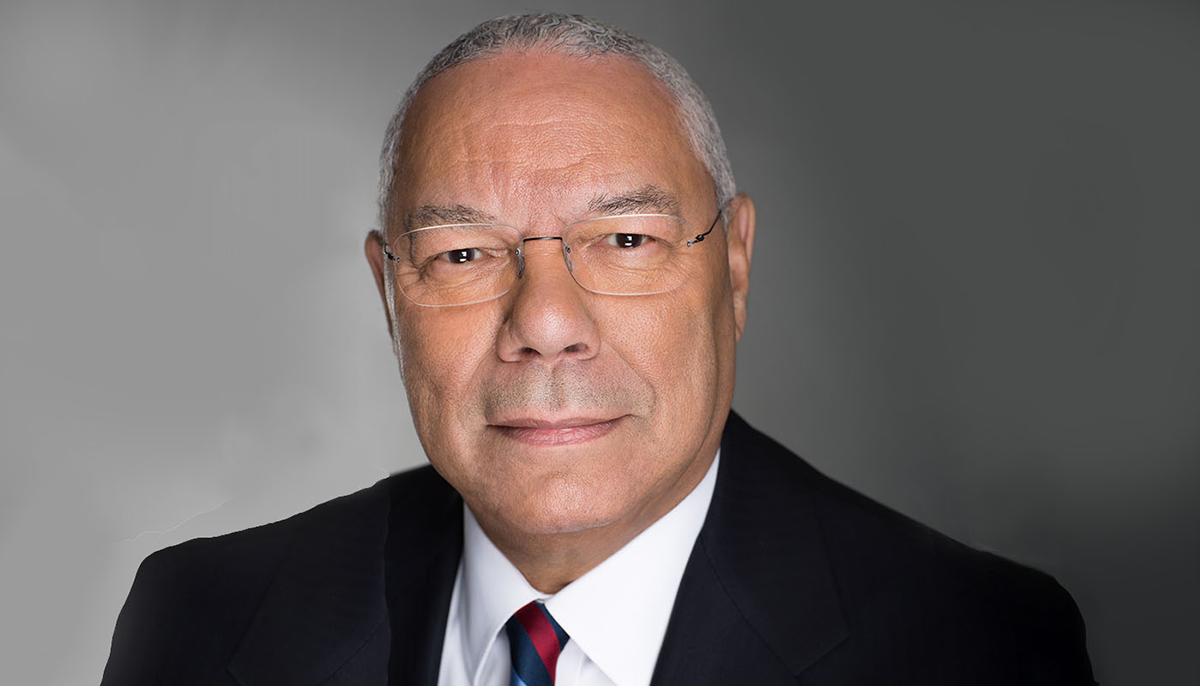Pictured above: Colin Powell, one of the most controversial political figures in contemporary history, died on Oct. 18, leaving behind a contentious record.
Courtesy of PBS
By Molly Ryan
In the past few decades, Colin Powell has become one of the most widely controversial figures in contemporary American history and politics.
Powell’s legacy came into the public eye once again on Oct. 18 when it was announced the former Secretary of State died due to COVID-19 related complications at Walter Reed Military Medical Center.
In the wake of his death, Powell’s historical memory as a highly accomplished General and the first Black Secretary of State under former President George W. Bush’s first term triumphed over the decades of controversy surrounding him.
“While Powell’s achievements should in no way be diminished, they should instead be witnessed in the same light as the atrocities that he enabled and embedded due to his actions as Secretary of State,” said junior history major Cameron Lemery. “To only remember half of one’s legacy is to remember a new person entirely, and a person who only exists in fiction.”
Despite being a prominent figure in Bush’s Administration, it wasn’t until after the 2001 attacks on the World Trade Center that Powell would earn his status as a lead architect for the course of the Iraq War.
Commemorating its 20-year anniversary in September, the tragedy has played an undeniable role in American politics. For some, including many college-aged students like junior history major Cameron Lemery, a post-9/11 world is all they know.
“I would say that my perception of American politics has fluctuated greatly throughout my life, due in part greatly because of growing up in a post-9/11 society,” said Lemery. “Due to the events of 9/11, my parents adhered to a sort of ‘blind patriotism’ approach to engaging with politics. If something in any way challenged or critiqued the United States at large, it would be seen as ‘unamerican’ by my family.”
For adjunct American History professor Aaron Lewis, 9/11 was a day where the TV briefly broadcasted the tragedy in his fourth-grade classroom.
“Unlike some other schools, we watched the news for just a little while, maybe 20 minutes, and went about the rest of the day… From there, it was strange because we were 10-year-old kids debating whether or not the U.S. army should invade the Middle East.”
According to Lewis, Powell’s most significant impact on 9/11’s legacy in America was his 2003 speech at the United Nations Security Council when he justified America’s war efforts in Iraq with claims that the insurgents were holding weapons of mass destruction (WMD).
“He engineered widespread support for an invasion of Iraq due to the supposed presence of weapons of mass destruction,” Lewis said. “He later came under fire because a 2004 report declared that the evidence he cited regarding the WMDs was inaccurate. What was perhaps so damning for Powell’s reputation was that he worked hard to create an international coalition to invade Iraq. Thus, he unfairly involved numerous other countries in the invasion.”
According to Lemery, there are few people more responsible for the patriotic perception of the “War on Terror” than Powell himself.
“Powell’s role in relation to the Iraq War isn’t something that should be swept under the rug,” Lemery said. “This was the man who stood in front of the United Nations Security Council and espoused still-unproven claims that Saddam Hussein’s regime was in possession of Weapons of Mass Destructions (WMDs).
“His actions were no doubt instrumental in shoring up international support for the coalition of nations that would invade Iraq, which would result in the deaths of thousands of innocent Iraqi citizens and the destabilization of an entire region.”
In recent years, he has been a critic of the Republican party, despite being a longtime member himself. This further polarized him as figure, now applauded by many Democrats and widely ousted by Republicans.
However, despite controversy that has loomed over Powell’s character for the past decades as a public figure, his death sparked widespread admiration from other contemporary political figures — like President Joe Biden who said Powell will be “remembered as one of our great Americans.”
“The historical memory of Colin Powell is something that we are seeing play out in real-time,” said Lemery. “Powell was rightly criticized by many from both sides as being a ‘liar’ and ‘war criminal.’ However, now in death, the Powell that is being remembered by many in the United States was an honest, hardworking General of the United States Army and diligent Secretary of State.”
Nearly a month after his death, Powell’s legacy rests subjectively in the minds of the American public.
“Powell himself, while likely not being the ‘mastermind’ or lead proponent of U.S interventionism in Iraq and the ‘War on Terror’ still is largely responsible for the pain and suffering that would befall the Iraqi citizens,” Lemery said.



